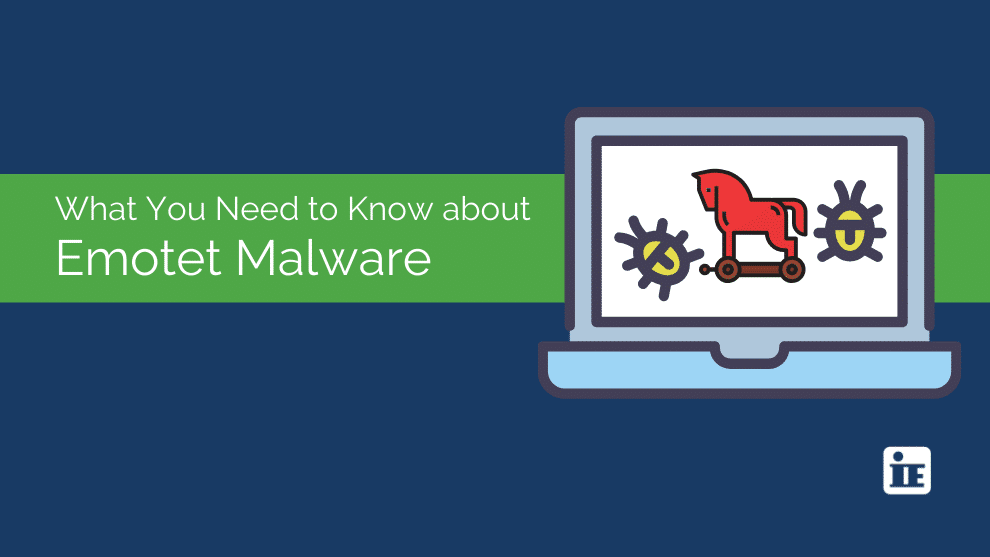What You Need to Know about Emotet Malware
The current COVID-19 pandemic has given hackers a prime opportunity to get creative when it comes to inventing new ways of circulating malicious code to steal your data. They’ve gone to such measures as to recalibrate existing malware, reimagining it for newer, less exclusive malicious pursuits. Which is why you may have seen Emotet, originally a banking trojan, making a comeback.
What is Emotet Malware?
In the current remote environment, Emotet has made its presence known once again, solidifying a spot for itself among this year’s top malware threats.
It started as a thorn in the backside of the banking industry, acting as an advanced, modular, and self-propagating Trojan that disguised itself as legitimate looking banking software. Now hackers are using it as a mass distributor of malicious campaigns and malware – targeting more than just the banking industry. Essentially, it’s been reborn as a true polymorphic code.
Using persistence and evasion techniques, Emotet is proficient at avoiding detection, making it particularly troublesome. One theory for why Emotet, an “old malware”, has been re-tooled now in COVID-19-specific attacks is because of its high success rate evading traditional and signature-based AV and EDR tools.
How does Emotet Malware Spread?
Emotet is trojan malware that spreads predominantly through sketchy email campaigns (Malspam) and phishing spam emails with malicious links and attachments.
Of course, social engineering still plays a vital role in spreading it around. You may receive an Emotet-infected email from a legitimate-looking business, leveraging tempting language like “payment details” and “your invoice”, etc. If it looks real enough, why wouldn’t you click? That is what hackers are banking on.
In some cases, hackers have been hijacking legitimate emails and sending infected attachments and links to the victims’ contact lists. Receivers are more likely to click attachments from a known source, and thus the spread has been exponential.
Fortify your Work-from-Home Strategy with Security Experts
We get it - your IT team is putting out fires left and right. Our Advisory Services Group can work with you and your team to find the best and most cost-effective ways to secure your environment against threats like Emotet. Think of us as that extra tech bandwidth you need on hand. We are here to help.




